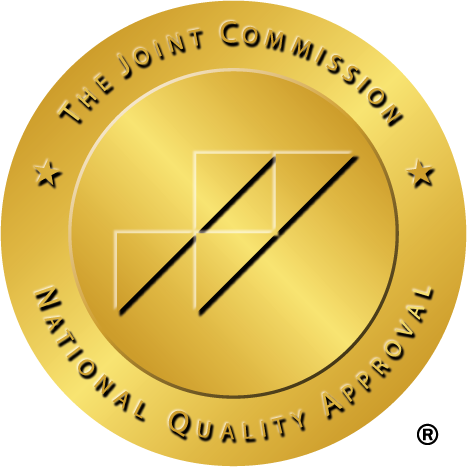If you or one of your family members has ever been referred for psychological testing, it’s natural to have specific questions or some reservations about the process. In other circumstances, you may have heard about psychological testing and wonder if it is the right option for you or someone you know.
In either situation, adult psychological evaluations are a harmless method of observation performed by trained psychologists to measure an individual’s emotional state to provide a clinical diagnosis of their mental health.
Whether you need psychological evaluations and assessments, or support with substance abuse and addiction issues, New Waters Recovery in North Carolina has trained mental health professionals ready to provide you with the resources and guidance for long-term stabilization and recovery.
SPEAK WITH AN ADMISSIONS COUNSELOR TODAY
Adult Mental Health Assessments: What Are They?
Adult mental health assessments, also called psychological evaluations, or full psychological evaluations, are comprehensive evaluations of your emotional state.[1] It gives clinical psychologists and physicians an in-depth perspective into your cognitive functioning.
Mental health assessments are not formal psychological exams or evaluations based on a specific performance benchmark. However, they encompass a comprehensive understanding of an individual’s psychological and cognitive functioning, often including an in-depth review of their Psychosocial History. Its primary objective is to assist individuals in diagnosing and suggesting treatment paths.
Individuals undergoing an assessment are free to express themselves, and there is no need to answer any questions they are uncomfortable with. However, honesty is of utmost importance, as it helps determine the most suitable treatments for them.
Why Are Adult Psychological Assessments Given?
Psychological assessments may be given for a variety of reasons and are sometimes a requirement for certain vocations.[2] Below are a few reasons why a psychological assessment may be recommended:
- Uncover information regarding mental illness concerns. This could include mental health diagnoses of anxiety, depression, schizophrenia, dementia, and anorexia nervosa.
- Decipher subtle and obvious differences between physical and mental health disorders.
- Examine individuals who have been recommended for mental health interventions, which may relate to difficulties they are having at their place of education, employment, or personal lives. For instance, this process may be employed to identify whether an individual suffers from a learning impediment, attention-deficit/hyperactivity disorder (ADHD), or a behavioral disorder.
- Evaluate the mental well-being of an individual who has been admitted to a hospital or taken into custody for criminal offenses.
What is Involved in a Comprehensive Psychiatric Evaluation?
A comprehensive psychological evaluation involves a range of formal and structured psychological and neuropsychological tests. These are acquired through clinical interviews tailored to identify and describe emotional regulation, behavior, and learning issues.
Typically, individuals seeking psychological testing and evaluation are referred by a medical doctor, social worker, or government employee. However, the testing process can occur in different settings like a mental health facility, hospital, university medical center, school, or private office.
How Long Does a Psych Evaluation Take?
The evaluation process can be extensive and often requires multiple appointments with a clinician lasting several hours. In addition, the client will typically complete various standardized written tests such as questionnaires, ability ranking lists, surveys, and checklists.
These standardized tests, also known as norm-referenced tests, allow for more objectively determining a client’s abilities within a specific age range.
What Are the Types of Adult Psychological Evaluations?
When undergoing an adult psychological evaluation, there are typically four different categories of testing that individuals can experience. These categories include:
Clinical Interviews
Clinical interviews are a valuable opportunity for psychologists to gather necessary background and family information regarding the individual. These discussions serve as an information-gathering session that is ultimately used for the betterment of the individual. During the interview, the professional may ask specific questions concerning the individual’s various life stages, requiring them to recollect and review crucial personal history.
Neuropsychological Assessments
In order to assess an individual’s cognitive abilities, psychologists rely on neuropsychological assessments.[3] These types of evaluations take up to two days to complete and provide psychologists with a complete understanding of an individual’s cognitive strengths and weaknesses.
Neuropsychological assessments are particularly useful for individuals with brain injuries or learning disabilities, giving valuable insights to help design appropriate healthcare treatment plans.
Personality Assessments
A personality assessment aims to provide psychologists with a deeper understanding of an individual’s personality. Our personalities are shaped by various factors, including genetics, the environment around us, and social interactions.
As a result, personality tests are designed to consider this blend of influences to provide accurate results about the person. By comprehensively measuring personality traits, these assessments provide a more nuanced and well-rounded understanding of an individual’s character.
Behavioral Assessments
Behavioral assessments involve observing and measuring an individual’s conduct to understand their thoughts and behavior better. It seeks to identify the underlying causes and triggers of specific actions, ultimately helping to address any undesirable behavior.
This approach allows individuals and professionals to effectively monitor behavior and work towards lasting improvement.
SPEAK WITH AN ADMISSIONS COUNSELOR TODAY
Adult Psychological Evaluation FAQs
A psychological assessment is a professional evaluation that utilizes standardized testing, observations, and other proven methods to assess an individual’s mental health and behavioral functioning or impairment.
The mental health evaluation can be administered by different medical professionals, including your primary care physician, certified psychiatrist, licensed psychologist, or trained social worker.
An assessment of an individual’s psychological state can be time-consuming, with the testing length varying depending on the scope of the evaluation. Typically, a comprehensive psychological evaluation can take two to eight hours to complete.
Yes. Any information shared between a trained clinician or psychologist is always 100% confidential and will only be used to help determine an accurate diagnosis or treatment option.
When preparing for a psychological evaluation, there’s no preparation required. To take the assessment, all that’s needed is your presence and attention. Each testing session includes breaks to ensure you can recharge and tend to your personal needs without distraction.
Get The Mental Health Support You Need Today
At New Waters Recovery, we work diligently to make sure you’re given the mental health support and treatment you need to live a long healthy life. Our psychological evaluations and psych testing in North Carolina are carried out with the highest degree of sensitivity and empathy, taking into account our clients’ dignity and confidentiality, with the aim of supporting them in obtaining a more profound understanding of themselves.
SPEAK WITH AN ADMISSIONS COUNSELOR TODAY
Related Topics
Sources
[1] Psychological testing in the service of disability determination – NCBI … National Library of Medicine. (n.d.-c). https://www.ncbi.nlm.nih.gov/books/NBK305236/ on May 15, 2023
[2] Mental status examination – StatPearls – NCBI Bookshelf. National Library of Medicine. (n.d.-b). https://www.ncbi.nlm.nih.gov/books/NBK546682/ on May 15, 2023
[3] Harvey, P. D. (2012, March). Clinical applications of neuropsychological assessment. Dialogues in clinical neuroscience. https://www.ncbi.nlm.nih.gov/pmc/articles/PMC3341654/ on May 15, 2023


